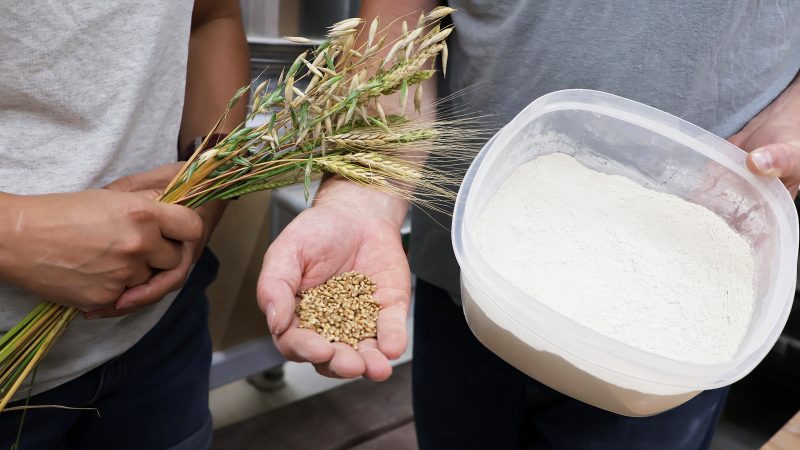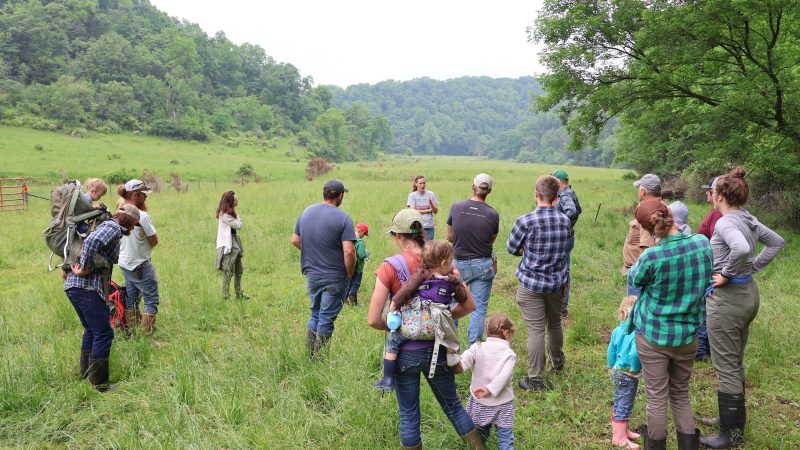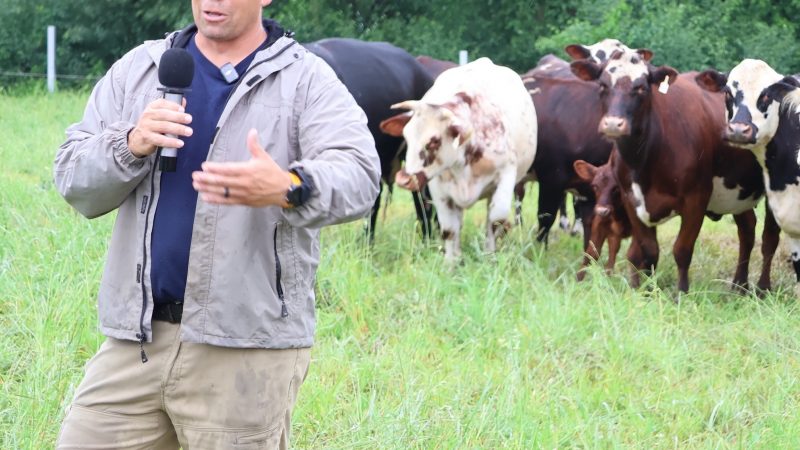Farmers Gather in Madison to Discuss ‘Bringing Small Grains Back to Minnesota’
MADISON, Minn. — “Welcome to my midlife crisis,” joked Peter Haugen on a Saturday morning in early August as a couple dozen farmers stood in…
LSP’s Soil Health Steering Committee got together in September 2024 to discuss ways of helping farmers in the region successfully adopt cover cropping, managed rotational grazing, no-till, and other regenerative practices. Discussions focused on developing a more viable small grains marketing infrastructure, supporting livestock integration into cropping operations, strengthening the Soil Builders’ Network, and making deeper investments in our localized peer learning groups such as soil hubs and grazing groups. For bios of Soil Health Steering Committee members, click here.
Are you farming in southeastern Minnesota and need help getting started in your soil health journey? LSP has put together a directory of technical assistance providers in southeastern Minnesota that can provide funding for cover crop establishment, as well as equipment rentals, testing services, and more. Check it out here.
Check out our LSP’s web calendar for the latest field Days, workshops and pasture walks.
Check out LSP’s new series of videos featuring farmers who are utilizing various methods to build soil health profitably.
Check out LSP’s ongoing Ear Dirt podcast series for conversations on cover cropping, no-till, managed rotational grazing, fungi, and just about anything else that builds soil health.
Through the publication, Bridge to Soil Health Program’s Peer-to-Peer Learning Groups: The Strategy & Construction of Regional Farmer Soil Hubs, LSP is sharing our experience constructing and implementing the Regional Soil Hubs through our Bridge to Soil Health initiative. We hope that other agricultural groups, including farmer-led groups, might want to borrow or adapt some of the approaches we’ve used.
If you have an idea you’d like to have featured in a video, blog, podcast, or field day, contact us.
LSP’s Soil Health, Water & Climate Change: A Pocket Guide to What You Need to Know, is available as a pdf document or as a mobile-friendly app.
In October 2020, a special LSP report was published: “Building the Bridge to Soil Health: The Power of Organizing Farmer-to-Farmer Engagement.” It describes the organization’s experience with launching the Bridge to Soil Health initiative. The report is available here.

MADISON, Minn. — “Welcome to my midlife crisis,” joked Peter Haugen on a Saturday morning in early August as a couple dozen farmers stood in…

On a misty June morning in northeastern Iowa, Nikki Meyer led half-a-dozen farmers down a field road through a thick stand of oaks and other…

From crunching the numbers to developing relationships with public and private landowners, Eric Heins of Hoosier Ridge Ranch isn’t afraid to question the status quo…